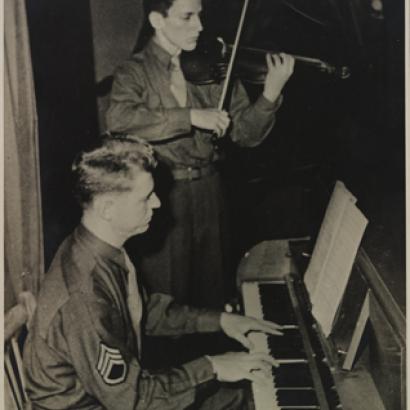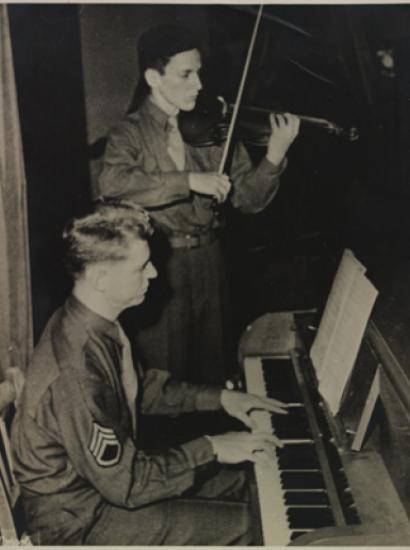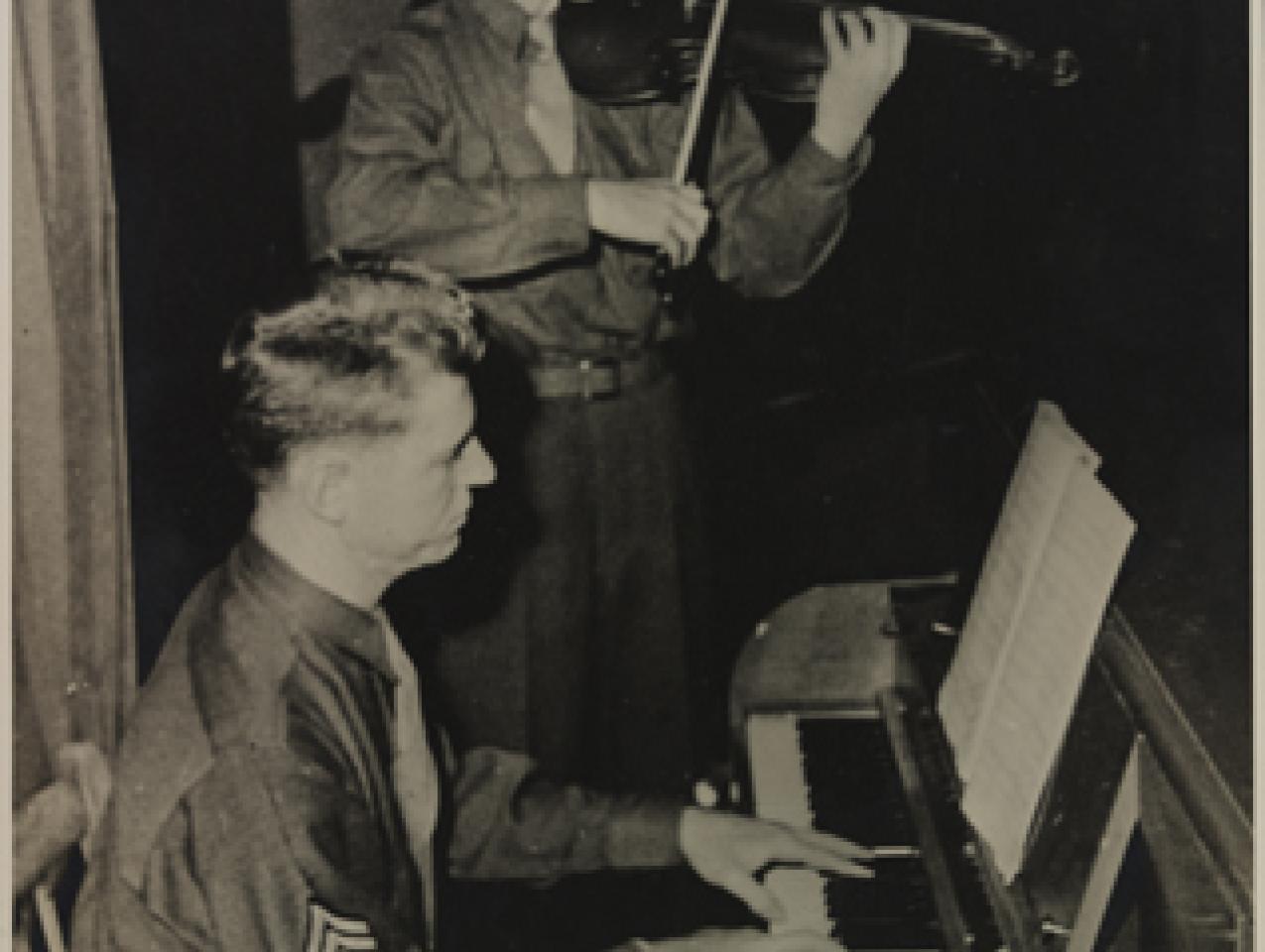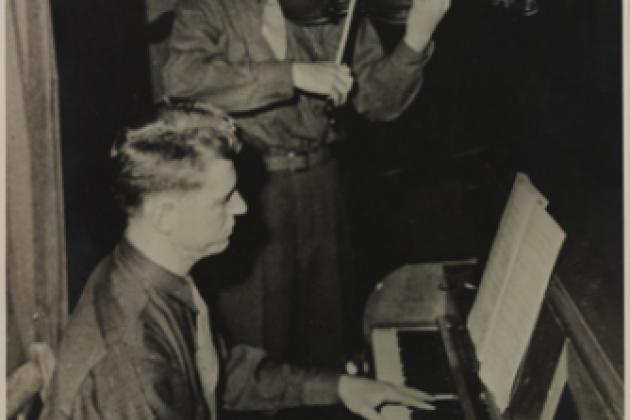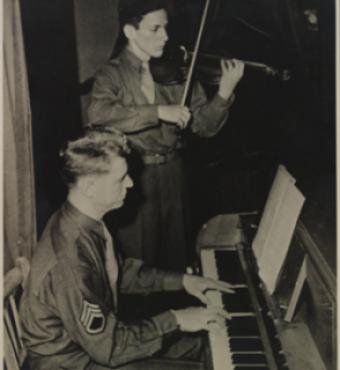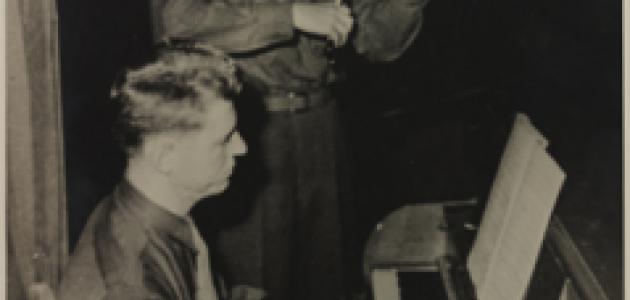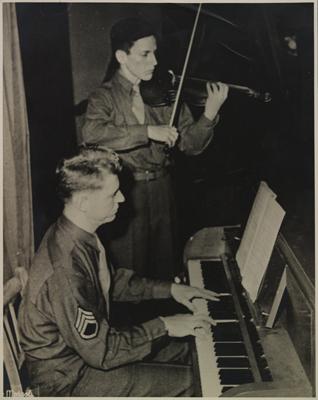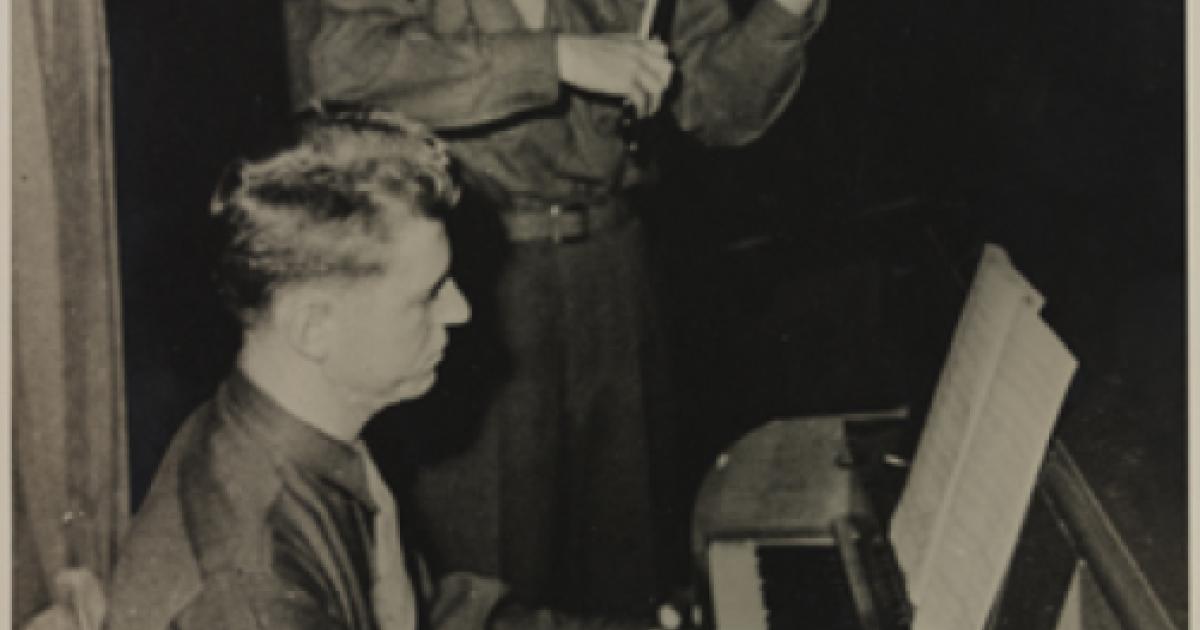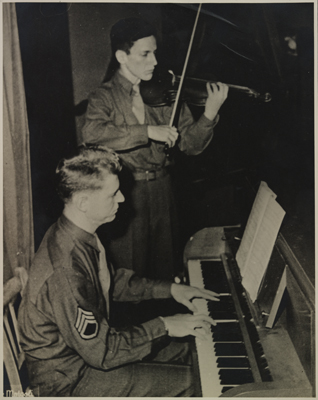
This week, Hoover Library & Archives acquired the collection of Stuart Canin—a World War II veteran, former concert master of the San Francisco Symphony, and the subject of the forthcoming documentary The Rifleman’s Violin, which tells the dramatic story of Canin’s musical performance, given at the age of nineteen, for Harry Truman, Joseph Stalin, and Winston Churchill during the July 1945 Potsdam Conference. The materials, now available in the Hoover Library & Archives reading room, include the young GI’s letters written to his parents during the Potsdam Conference, and photographs taken in Berlin and other European cities during Canin’s years of service.
Hailing from New York, the violin enthusiast Stuart Canin was drafted into the US Army at the age of eighteen and sent to Europe as a rifleman. As he has related in interviews, while headed up the gangplank of the ship that would take him across the Atlantic, Canin’s commanding officer pointed to the violin under the teenager’s arm and asked, “What are you going to do with that?” To which the new GI answered, “Well, you never know.”
Canin served the US Army during the last months of fighting in Europe, making many friends amongst actors and musicians in the ranks, including Sergeant Eugene List, a well-known pianist who organized a “GI Symphony.” Two days after the war in Europe ended on May 8, Canin, List, and their friend Mickey Rooney received somewhat mysterious orders that they would join an impromptu “soldier show entertainment company.” After a few months of performing for wounded soldiers in Paris, they were flown to Berlin, where they were told to “get shined up” and wait on the porch of a house for their new audience to appear. To the amazement of the young men, three limousines arrived—one bearing Truman, another Stalin, and the last, Churchill.
Canin and List proceeded to play for this famous triumvirate (Mickey Rooney’s comedy routine was deemed as possibly lacking in appeal to Joseph Stalin). Canin reflected that even though in the years following the Potsdam Conference he performed all over the world as a professional violinist, he was never as nervous as he was playing that day in 1945: “the thought of playing for these gentlemen was way beyond what I could ever imagine.” Included in the archive now housed at Hoover are some of the daily letters that Canin wrote home to his parents from the conference, where he and List continued to play during breaks in the talks between the world leaders. On July 21, 1945, Canin wrote his parents, “The president liked our music very much. After we finished he came over to us and thanked us for ‘adding so much to the occasion.’” Soon after his performance at Potsdam, Canin completed his tour of duty with the army, returned to the States, attended the esteemed Julliard School, and became a world renowned musician and the first American to win the Paganini International Violin Competition in 1959.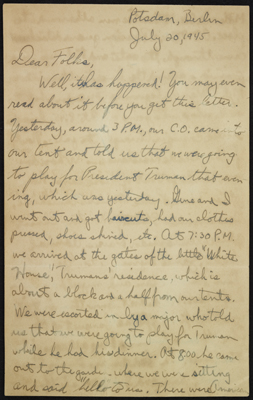
The dramatic story of Stuart Canin’s wartime experiences will soon be told in a documentary film to be released in early 2016. A collaboration between Hoover Library & Archives and Citizen Film, The Rifleman’s Violin tells the remarkable tale of how the young GI bearing a “$2, cigar-box violin” came to play Paganini and Tchaikovsky in front of the most powerful men in the world. The film also features the November 2014 concert Potsdam Revisited: Overture to the Cold War, during which Stuart Canin reproduced the Potsdam performance to a sellout crowd at Stanford University’s Bing Hall.
Details concerning the Stuart Canin collection can be found through Stanford’s online catalog. For more information about the forthcoming film and video from the Potsdam Revisited concert, visit Citizen Film’s website and vimeo channel. You can also listen to an NPR interview with Stuart Canin that aired on July 17, 2015.




